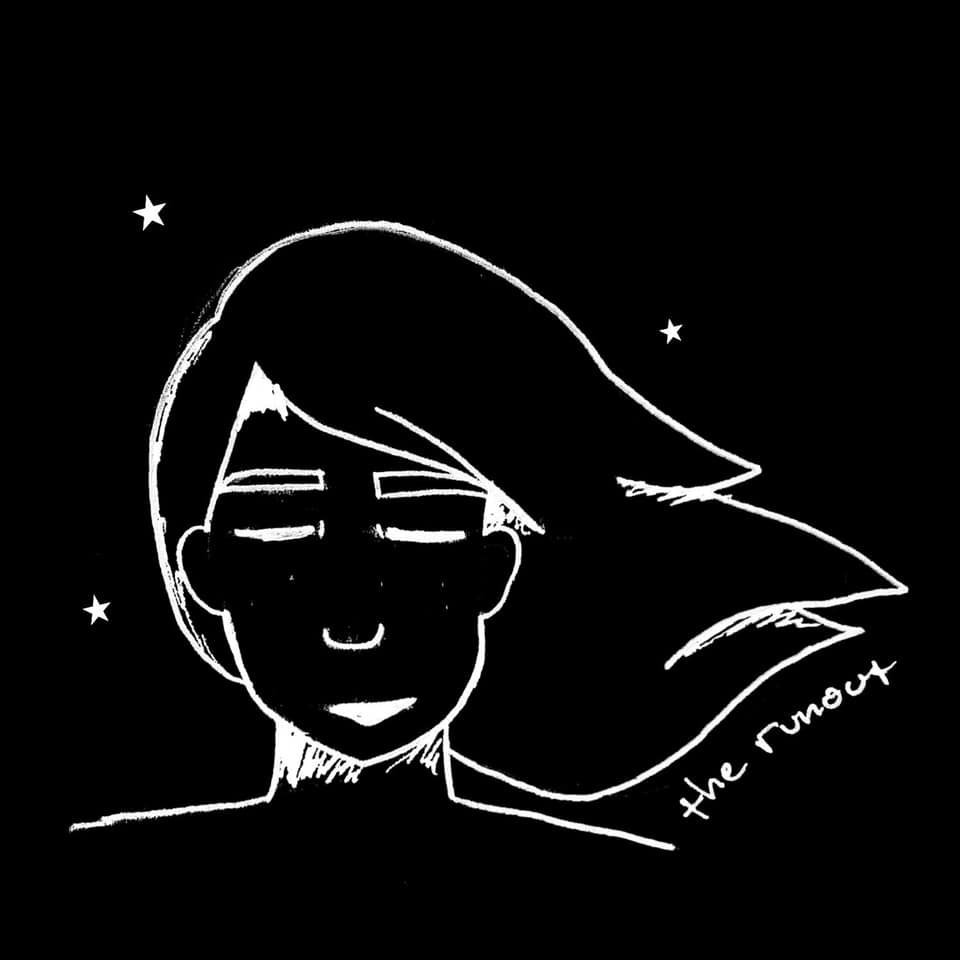Zion. A Composition
Live at Columbia Museum of Art
Thursday, Nov 17th, 2022
Baker & Baker Series
by Kevin Oliver
An ambitious instrumental and visual art piece conceptualized by Saul Seibert with help from artist Virginia Russo, multimedia from Ash Lennox, and a cast of fellow musicians, Zion. A Composition came alive in multiple dimensions on Thursday evening at the Columbia Museum of Art, as part of their ongoing Baker & Baker concert series.
Seibert opened the evening with a short explanation of the story behind the composition, and as he told the family background in front of multiple members of his own family in the audience, the anticipation in the audience built. The delineation of the three acts: The Diaspora, The Sojourn, and The Ascent, was a useful glossary of sorts for the crowd to reference, but as the piece unfolded, there was no visual division on screen or stage to indicate when one movement ended and a new one began. As such, at several lulls in the program audience members interjected applause and exclamations, seemingly unsure if something was ending or maybe just overwhelmed with appreciation of what had just transpired in a concluded segment.
With two of the three movements already released for a while prior to this live performance, and the third just completed, it was still a much different experience watching the musicians perform the entire piece live. Left to right, they filled the CMA stage: Seibert’s older brother Zach Seibert (E.Z. Shakes) sat quietly cooking up some sinister electric guitar tones, Marshall Brown contributed keyboard swirls of varying tone and intensity, Kevin Brewer held down the beats even as they came and went throughout, Darren Woodlief, also seated, provided a solid bass presence that asserted itself fully in the final movement. Sean Thomson was the musical wizard of the night, starting on spooky, sensual sitar and moving to steel guitar and some wicked electrified mandolin. Seibert himself stood center stage, hollow body guitar in hand throughout, the ringleader of this spiritual, musical circus troupe.
Every musical composition has an arc, that up-down movement that gives it an interesting story to tell. Zion’s first movement, Diaspora, came through as a slow-building bundle of potentialities, with the audience a bit on edge, unsure of where it might be headed, perhaps. The preshow preface alluded to one beginning to rid themselves of preconceived ideologies, attitudes, and casting those things out, and the music reflected such a sweeping task. Thomson’s sitar was prominent through the early passages, giving this portion a raga-like intonation that allowed listeners to settle into the aural universe of Zion.
As the middle section opened up, the music soared, searching for those times of sojourn, as the movement’s title suggests–those places of rest, as one searches for home. At times the band resembled arena rockers on an extended jam, bluesy and blustery and supremely confident. In these sections, the drumming and the guitars evoked the percussive jazz plains of Steve Tibbetts’ 1980s work, or a more democratic take on the guitar orchestras of Rhys Chatham. In between those searing, searching sections the dynamic shifted to hushed tones, leaving sometimes a single instrument moaning, or clicking along softly as the band reloaded for the next swell like a surfer coiling his muscles for the next wave.
It is in its final movement, however, that Zion finds, well, Zion. The Ascent is a lumbering leviathan of a groove, somewhere between Soundgarden-level grunge and the groaning Krautrock grooves of Can or Neu!, just a beast of a display anchored by Woodlief’s mammoth bass riffing. Again, however, there are interludes, lulls in the action. Life isn’t all one trajectory, after all, and neither is the ascent to Zion, musically speaking. The mountain does eventually get conquered, and in conclusion the music doesn’t so much fade away as plant itself on the peak and say “done.”
Visually, artist Virginia Russo’s live painting/art added a facet to the proceedings that didn’t have to be there, but the performance was richer and fuller for it. As the band’s musical arc proceeded to rise and fall, so did Russo at the front of the stage, clad in black with a rolled out white canvas in front of her. She proceeded to paint over the entire canvas with her hands, no brushes, and then pick up the fully paint-saturated canvas and cut it into long, increasingly narrow strips. Those, she then rolled up before pulling them back apart, one ripped square at a time. The squares were then arranged on a new, clean white canvas to make a totally different piece of art. It was a perfect visual analogy for the thematic elements of the musical composition and served to reinforce those themes as the audience both listened and watched the proceedings.
Other parts of her artwork for Zion were projected throughout as sometimes moving images on two large screens behind the musicians, lending a psychedelia gauziness to the already evocative visuals.
Overall, I’d call this a nearly unqualified success, to write and perform such a challenging piece of multimedia art here in Columbia. I’m not sure I’ve seen anything quite like it locally, and Seibert’s prior resume as a garage rock raconteur certainly wouldn’t have hinted at the possibility of something like this coming forth. Going in, Seibert told me himself that there would be very, very limited live performances of this project, and I understand why–the preparation and commitment of all the participants was fully on display for this one.


